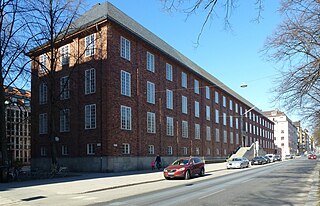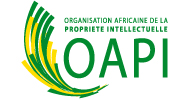Related Research Articles

The World Intellectual Property Organization is one of the 15 specialized agencies of the United Nations (UN). Pursuant to the 1967 Convention Establishing the World Intellectual Property Organization, WIPO was created to promote and protect intellectual property (IP) across the world by cooperating with countries as well as international organizations. It began operations on 26 April 1970 when the convention entered into force. The current Director General is Singaporean Daren Tang, former head of the Intellectual Property Office of Singapore, who began his term on 1 October 2020.
The Patent Cooperation Treaty (PCT) is an international patent law treaty, concluded in 1970. It provides a unified procedure for filing patent applications to protect inventions in each of its contracting states. A patent application filed under the PCT is called an international application, or PCT application.
In patent law, industrial design law, and trademark law, a priority right or right of priority is a time-limited right, triggered by the first filing of an application for a patent, an industrial design or a trademark respectively. The priority right allows the claimant to file a subsequent application in another country for the same invention, design, or trademark effective as of the date of filing the first application. When filing the subsequent application, the applicant must claim the priority of the first application in order to make use of the right of priority. The right of priority belongs to the applicant or his successor in title.
There are two provisions in the regulations annexed to the Patent Cooperation Treaty (PCT) that relate to the search and examination of patent applications concerning computer programs. These two provisions are present in the PCT, which does not provide for the grant of patents but provides a unified procedure for filing, searching and examining patent applications, called international applications. The question of patentability is touched when conducting the search and the examination, which is an examination of whether the invention appears to be patentable.
The International Patent Institute (IIB) was an intellectual property organisation established on June 6, 1947 in The Hague, Netherlands, by a set of European countries, i.e. France, Belgium, Luxembourg and the Netherlands. It was integrated into the European Patent Organisation on January 1, 1978. Its purpose was to centralize patent searching and archiving as well as the resources needed for the prior art searches for its member countries.

A utility model is a patent-like intellectual property right to protect inventions. This type of right is available in many countries but, notably, not in the United States, United Kingdom or Canada. Although a utility model is similar to a patent, it is generally cheaper to obtain and maintain, has a shorter term, shorter grant lag, and less stringent patentability requirements. In some countries, it is only available for inventions in certain fields of technology and/or only for products. Utility models can be described as second-class patents.
The PCT Newsletter is a monthly publication of the World Intellectual Property Organization (WIPO). It contains "up-to-date news about the Patent Cooperation Treaty (PCT)", which provides a system for filing international (patent) applications. The PCT Newsletter is published in English only. Important changes to the PCT are mentioned and explained in the PCT Newsletter.
A patent application is a request pending at a patent office for the grant of a patent for an invention described in the patent specification and a set of one or more claims stated in a formal document, including necessary official forms and related correspondence. It is the combination of the document and its processing within the administrative and legal framework of the patent office.
This is a list of legal terms relating to patents and patent law. A patent is not a right to practice or use the invention claimed therein, but a territorial right to exclude others from commercially exploiting the invention, granted to an inventor or their successor in rights in exchange to a public disclosure of the invention.

Canadian patent law is the legal system regulating the granting of patents for inventions within Canada, and the enforcement of these rights in Canada.
The Nordic Patent Institute (NPI) is an intergovernmental organisation established by the governments of Denmark, Iceland and Norway. It is based in Taastrup, Denmark. Since January 1, 2008, the Institute acts as Patent Cooperation Treaty (PCT) authority. As of May 1, 2013, it is, with the European Patent Office and the Swedish Patent and Registration Office, one of the three International Searching Authorities (ISA) and International Preliminary Examining Authorities (IPEA) available for international applications filed with the Receiving Offices of Denmark, Iceland, Norway and Sweden. It also carries out Supplementary International Searches in Danish, English, Icelandic, Norwegian and Swedish.
The Patent Prosecution Highway (PPH) is a set of initiatives for providing accelerated patent prosecution procedures by sharing information between some patent offices. It also permits each participating patent office to benefit from the work previously done by the other patent office, with the goal of reducing examination workload and improving patent quality.

The Swedish Intellectual Property Office, formerly the National [Swedish] Patent and Registration Office, is a Swedish government agency based in Stockholm and Söderhamn in charge of patents, trademarks and industrial designs. The Office acts as Patent Cooperation Treaty (PCT) authority, i.e. International Searching Authority (ISA) and International Preliminary Examining Authority (IPEA). Peter Strömbäck is the current Director General of the Office.

The Organisation Africaine de la Propriété Intellectuelle or OAPI is an intellectual property organization, headquartered in Yaoundé, Cameroon. The organisation was created by Bangui Agreement of March 2, 1977. The Bangui Agreement was subsequently amended in 1999.
World Intellectual Property Indicators (WIPI) is an annual statistical report published by the World Intellectual Property Organization (WIPO). The publication provides an overview of the activity in the areas of patents, utility models, trademarks, industrial designs, microorganisms, plant variety protection, geographical indications and the creative economy.
Patent law in Aruba is mainly governed by the Patents Regulation, the law governing the Aruban patent. The Dutch government indicated in 2007, that the patent regulation was, to a large extent identical to the Rijksoctrooiwet.
The Visegrad Patent Institute (VPI) is an international organization for cooperation in the field of patents, created by the national patent offices of the four Visegrad countries, namely the Czech Republic, Hungary, Poland and Slovakia. The Agreement on the Visegrad Patent Institute was signed in Bratislava on February 26, 2015. The Institute acts as an International Searching Authority (ISA) and International Preliminary Examining Authorities (IPEA) under the Patent Cooperation Treaty (PCT).
Republic Act No. 8293, otherwise known as The Intellectual Property Code of the Philippines lays down the rules and regulations that grant, and enforce patents in the Philippines. Patents may be granted to technical solutions such as an inventions, machines, devices, processes, or an improvement of any of the foregoing. The technical solution must be novel, innovative, and industrially useful. In order for a technical solution to be granted a patent, the inventor must file an application to the Bureau of Patents, which will examine, and in some cases, grant its approval. The law is designed as to foster domestic creativity, to attract foreign investors, and to motivate inventors to release their products for public access.
References
- ↑ Article 55(4) PCT
- ↑ World Intellectual Property Organization, The First Twenty-five Years of the Patent Cooperation Treaty (PCT) 1970-1995, 1995, ISBN 92-805-0601-3, page 142.
- ↑ Rule 86.1(b) PCT
- ↑ PCT Newsletter March 2006 (No. 03/2006) (pdf).